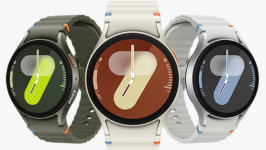We all know global warming is an important global issue (okay, maybe not all of us), but could its impact be spreading outward into the far reaches of space, attracting potentially dangerous asteroids to Earth?
Well, no, but that didn't stop one CNN host from wondering out loud about it.
Deborah Feyerick had just finished asking Bill Nye, "The Science Guy," as well as head of the Planetary Society, about a possible link between global warming and the giant snowstorm that hit the east coast over the weekend when she brought up the topic of space. As the asteroid 2012 DA14 prepares to buzz by the Earth on Feb. 15, Feyerick asked if a warming climate was in any way to blame.
"We want to bring in our science guy, Bill Nye, and talk about something else that's falling from the sky, and that is an asteroid," she said. "What's coming our way? Is this the effect of, perhaps, global warming? Or is this just some meteoric occasion?"
"No, no, no, no," was Nye's answer to the strange query. Instead of just letting Feyerick twist in the wind, he generously tried to link to the two topics in another way by adding, "except it's all science. The word meteorology and the word meteor come from the same root, so, uhh..."
Nye then went on to discuss the asteroid in more detail, though the question left other outlets scratching their heads.
"Nye was good enough to respond with what sounded like a non-sequitur ... Instead of saying, 'No, dummy,'" wrote Colin Lecher at Popular Science.
Although the asteroid won't be making impact with the Earth, its trajectory will bring it closer than any previous space rock. It will pass through the orbit field that falls between earth and the International Space Station, meaning that as it flies by it will actually be closer to the Earth than the moon is.
If you're thinking about spotting the asteroid as it zips along its cosmic route, though, be prepared to bust out the proper equipment. The rock is about half the size of a football field, but it won't be visible unless you're looking through a telescope or a nice pair of binoculars.









